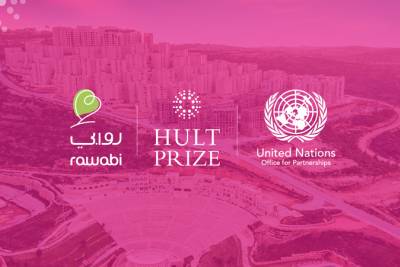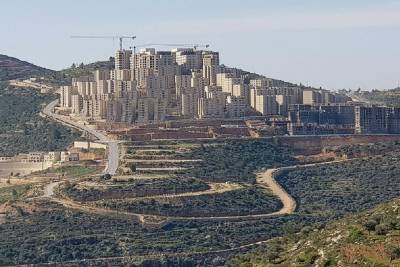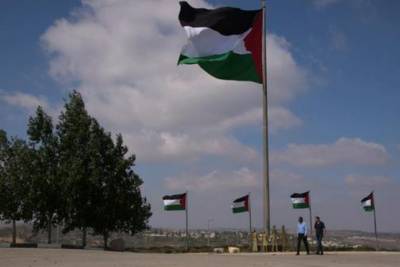Rawabi is a Land Mark
Haaretz - Shaoul Arieli - A new Arab city is built and populated for the first time in decades. Rawabi (hills), north of Ramallah, will absorb, within the next few weeks the first 700 families, where until now, it doesn’t look as a sign of a revolution, but it points to some sort of consciousness, and perhaps otherwise, even a future reality.
Entrepreneurs of Rawabi, Bashar al-Masri and his Qatari partners, challenged the concept of victimhood and helplessness acquired, which characterizes parts of Palestinian society, and rightly so unjustly. This is a successful attempt to take responsibility and risks, with visions for the future of Palestinian society.
Tens of thousands of Israelis who visited the city during construction, could not help but recall with shame common contemptuous phrases such as "Arab Labor": City which will be populated seven years after its establishment is conceived; “Green” City, to recycle all of its waste, contrary to false claims by adjacent Ateret settlement, that Rawabi will pollute the Mountain Aquifer; City being built with stone, hewn out within vicinity areas, while all the infrastructure was planned and set underground, with some of the energy sources being solar.
Masri also set new standards with regard to relations between entrepreneurs and the community.
The city was built on private land of 2,000 families; whose owners enjoyed three times the real worth of their property value. The damage caused to adjacent villages during the construction process was compensated by the developers renovating of roads, as well as building computer classrooms and contributions to cultural activities. Rawabi created 4,000 new permanent jobs and a similar number of non -permanent jobs as well. Even some of the Israeli companies were not absent from the list of beneficiaries, which could count no less than -630 of them.
Although the idea of "economic peace" emerged from manipulative mind of Benjamin Netanyahu, his ministers spared no effort to create obstacles to the builder of the city.
Masri wisely accepted the recommendation of one IDF commander; to copy the location of the city, which was designed, naturally, to sit on the "back of the mountain", on Highway 60 that connects the central bank to the western slopes of Samaria, because of the threatening proximity of Ofra and Beit El. The transition has forced the developers to ensure that they would not build a Qatari-funded base, which will shoot rockets at Ben Gurion Airport and Tel Aviv metropolitan area. In addition, Silvan Shalom, as Minister of Infrastructure, put a brake for two years on granting the authorization for the city water pipeline, and complained during the "building freeze", that it couldn’t be acceptable to stop settlements building, while Rawabi is being constructed.
The Palestinian Authority also had not assumed authority and management. Its commitment, through signing a contract binding it to build the city's educational institutions, was not worth the paper it signed on; hence, the entrepreneurs financed the construction of the educational institutions of their own pockets. Many ministers shunned the project, but when the first buildings have sprung up, and as usual, per politicians’ custom, they rushed to be photographed next to the city buildings.
Even to the Palestinians themselves, it was difficult to accept the city that did not sell itself to “Security Personnel” and to various house clans, and which kept the prices affordable to the middle class - a fifth of the price of similar-sized apartment in Modi'in, which is just a half hour drive.
Rawabi is a landmark. Israelis, interested in an independent neighbor who is responsible for his fate, should hope that initiatives in this spirit, characterize the future Palestinian society where Israel should be wise enough to avoid blocking them.
To view original article, Click Here.



